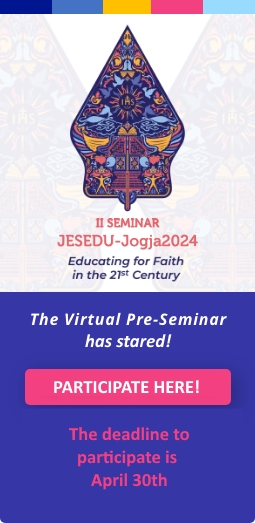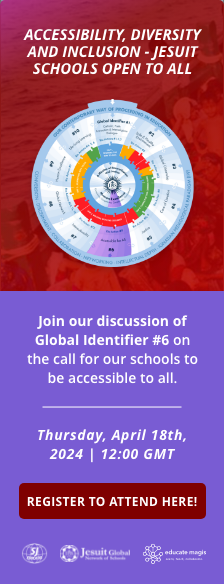“We have enormous capacity to awaken hope in our world, contributing to the formation of men and women who are just, true global citizens, capable of generating dialogue and reconciliation among peoples and with creation.” (Fr. Sosa, JESEDU-Rio2017 n.64)
Many of us have read this quote before, either in isolation or in the context of the speech which Fr. General Arturo Sosa delivered at the International Congress for Education Delegates in Rio de Janeiro in 2017. Over the past few years, we have heard the term Global Citizenship being used more and more in the context of Jesuit Education. In 2017 Training for Global Citizenship was included as one of 12 actions the Education Delegates committed to at JESEDU-Rio2017, in 2019 the Secretariat Taskforce on Global Citizenship published an Ignatian Definition of Global Citizenship and in the same year the commitment to Global Citizenship was included as one of the 10 Global Identifiers in A Living Tradition which make a Jesuit school Jesuit. An important aspect of Global Citizenship which is intrinsically linked, and which is being recognized as another fundamental aspect of our Jesuit Education is that of Interculturality. Indeed, this too has been named as one of the 10 Global Identifiers of a Jesuit school today. As so many communities around the world are being torn apart by racial, ethnic, and religious tensions, the need to address these tensions, to engage in respectful intercultural dialogue and to see God in ourselves and in the other becomes evermore important.
“The intercultural aspect is undoubtedly part of the heritage of Christianity, which has a “universal” vocation. In fact, in the history of Christianity there is the thread of dialogue with the world, in the search for greater fraternity among people. In the tradition of the Church, the intercultural perspective is not limited to appreciating differences, but helps to build up mankind’s peaceful co-existence.” (Educating for Intercultural Dialogue in Catholic Schools, Vatican City, 2013)
This then poses the question how can we help to build and foster a peaceful coexistence?
“Education contains a central challenge for the future: to allow various cultural expressions to co-exist and to promote dialogue so as to foster a peaceful society. These aims are achieved in various stages: (1) discovering the multicultural nature of one’s own situation; (2) overcoming prejudices by living and working in harmony; and (3) educating oneself “by means of the other” to a global vision and a sense of citizenship. Fostering encounters between different people helps to create mutual understanding, although it ought not to mean a loss of one’s own identity. Schools have a great responsibility in this field, called as they are to develop intercultural dialogue in their pedagogical vision!” (Educating for Intercultural Dialogue in Catholic Schools, Vatican City, 2013)
With this in mind, how can we best help our students and indeed entire school communities to recognize and celebrate diversity, to overcome prejudices and to work together to build a global vision and sense of global citizenship? Are there programs or projects in your school which work towards this? Is this something you incorporate in your lessons? Do you think we should focus more on intercultural communication and education? What are the skills for intercultural communication you think we need to teach our students?
In November and December 2020, Educate Magis invited some teachers to initiate this reflection through participating in the Pilot of a new training program for teachers on Intercultural Communication. Throughout the sessions we moved from understanding our own identity, examining possible biases, misunderstandings, or stereotypes and how these might influence our interaction with others to looking at our identities as Jesuit schools or organizations, at the similarities and difference in schools across the world, the challenges we all face and how we can respond to these challenges in a meaningful way.
The interactive nature of the training sessions meant participants had the chance to practice the skills presented with their counterparts in other Jesuit schools across the world through deep and meaningful conversations. The core skills we practiced were those of Active Listening and Intentional Speaking using the model of Ignatian Spiritual Conversations.
We are preparing a new training module for later in 2021, of which we will share more information in the months to come. In the meantime, we would like to invite you to share what your understanding of Interculturality is? Should this topic be taught in our schools and why? Are there programs in your schools or lessons in your classrooms which already teach interculturality? and What are the skills for interculturality or intercultural communication you think we need to learn ourselves and teach our students? We would love to hear your thoughts on this! Share your thoughts here! Interculturality in Jesuit Schools – what is it and is it important?

